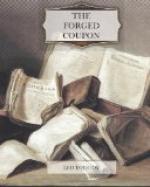So vast an agglomeration of races as that which constitutes the Russian empire cannot obviously be represented by a single type, but it will suffice for our purposes to note the characteristics of the inhabitants of Great Russia among whom Tolstoy spent the greater part of his lifetime and to whom he belonged by birth and natural affinities.
It may be said of the average Russian that in exchange for a precocious childhood he retains much of a child’s lightness of heart throughout his later years, alternating with attacks of morbid despondency. He is usually very susceptible to feminine charm, an ardent but unstable lover, whose passions are apt to be as shortlived as they are violent. Story-telling and long-winded discussions give him keen enjoyment, for he is garrulous, metaphysical, and argumentative. In money matters careless and extravagant, dilatory and venal in affairs; fond, especially in the peasant class, of singing, dancing, and carousing; but his irresponsible gaiety and heedlessness of consequences balanced by a fatalistic courage and endurance in the face of suffering and danger. Capable, besides, of high flights of idealism, which result in epics, but rarely in actions, owing to the Slavonic inaptitude for sustained and organised effort. The Englishman by contrast appears cold and calculating, incapable of rising above questions of practical utility; neither interested in other men’s antecedents and experiences nor willing to retail his own. The catechism which Plato puts Pierre through on their first encounter ("War and Peace”) as to his family, possessions, and what not, are precisely similar to those to which I have been subjected over and over again by chance acquaintances in country-houses or by fellow travellers on journeys by boat or train. The naivete and kindliness of the questioner makes it impossible to resent, though one may feebly try to parry his probing. On the other hand he offers you free access to the inmost recesses of his own soul, and stupefies you with the candour of his revelations. This, of course, relates more to the landed and professional classes than to the peasant, who is slower to express himself, and combines in a curious way a firm belief in the




